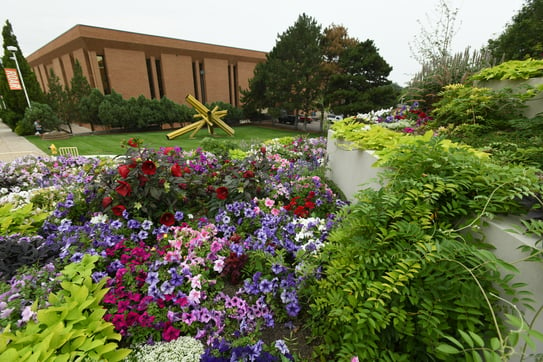
If you’ve ever had a houseplant before, you’ve probably heard the advice to talk to the plant, or let it listen to music. This idea has been around so long that it can seem natural to do so. But if you stop and think about it, can plants ‘listen’ to us? And is there any evidence backing this long-standing claim?
Turns out, yes. But also no. It’s complicated to say the least.
The Origins of the Connection
One of the earliest studies was performed by Dr. T. C. Singh, Head of Botany at Annamalia University in India in 1962. Taking balsam plants, he exposed them to classical music, and found they achieved a growth rate of 20% more than the control group, which had no music played. This held true for raga music as well with it performing even better, lending to a 25-60% increase.
After various other experiments done by researchers around the world, the connection between plants and music was growing stronger. In 1973, Peter Tompkins and Christopher Bird published a book entitled The Secret Life of Plants. In it they shared a lot of research done by various individuals showing how music affected plants positively.
With that said, they also took it one step further, claiming that plants could feel, had intelligence, and were spiritual. The New York Times review of the book stated that many of the studies shown were dubious at best.
But dubious or not, that didn’t stop others from trying to find a real connection. Researcher Dorothy Retallack of Colorado’s Women’s College did a study the same year that Tompkins and Bird’s book was published. She ran multiple tests, including playing a single extended F note, as well as trying various types of music, including classical, jazz, and rock.
Her findings were intriguing. While the plants responded well to the single note, classical, and jazz music, they quickly began to wither when exposed to rock. The plants would also grow toward the music they ‘liked’ and away from the type they didn’t.
What is Going On with the Plants?
Is that it then? Plants are confirmed to grow better when exposed to the right type of music?
Not quite.
Researchers at the University of California, Santa Barbara are quick to point out that more tests need to be done in very controlled environments. Until a multitude of variables can be contained properly—including soil, temperature, amount of sunlight, etc.—nothing can be definitively proven. Plus, they add, those that use music to grow their plants are likely good caretakers in general.
Another point to emphasize is that plants aren’t ‘listening’ to music the same way you do. Nor do they ‘like’ and ‘dislike’ certain kinds of music. When you listen to music, the sounds are vibrations in the air which are converted into electrical signals which your brain interprets. Plants don’t do this. Instead, the vibrations may cause a process called cytoplasmic streaming, in which plants transport nutrients, proteins and organelles in their fluids, to be stimulated. This, in turn, could increase the plant's size and output.
A New Trend
But using music to help grow plants isn’t the only trend around. In 2012, the start of a product called PlantWave was created. A zero-waste record label called Data Garden teamed up with an engineer, Sam Cusumano, to develop a device that translates electrical resistance and signals within plants into workable music.
In other words, your plants can now make music.
In reality, the device does all the work, but it gets the information needed from the plant it is connected to. PlantWave is just one of a few different products on the market.
Before you head out thinking you can make a new hit pop song from your plants, keep in mind that the music generated is rather ambient in nature. It is much more for things like meditation and relaxation. Still, the fact that the plants can make music at all is impressive. Jon Shapiro, the product development manager at Data Gardens states, “"It does allow people, and it has allowed me, to look at other life forms and appreciate their aliveness in a different way."
More research continues to be done into the connection between plants and music. But ultimately, music alone won’t cause your plants to be happy and healthy. Regular care and the essentials such as watering and fertilizing will be the most important factors in helping your plants thrive.
Still, it won’t hurt to play some classical music every now and then.

-1.png)
